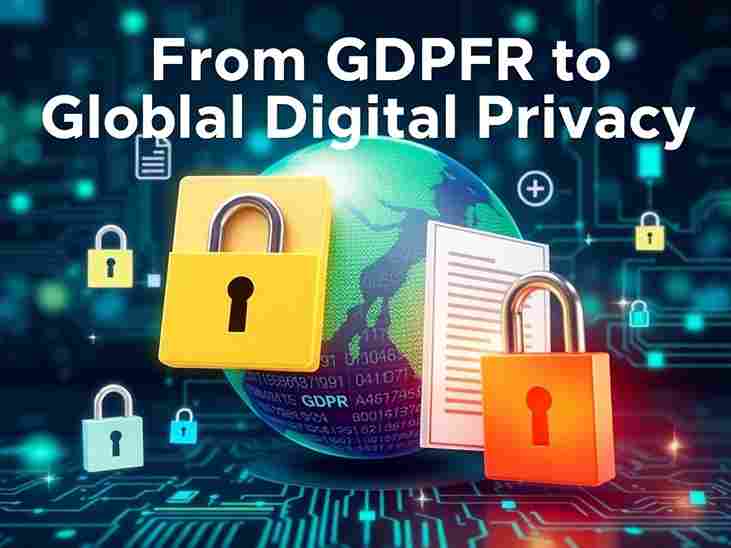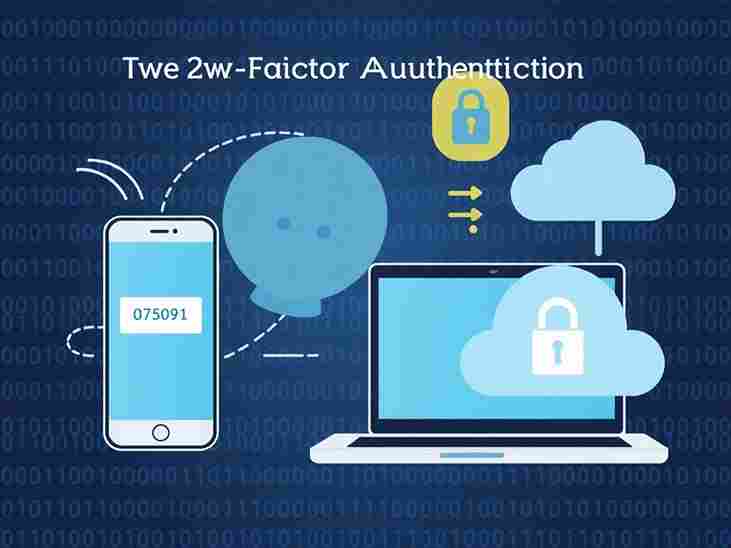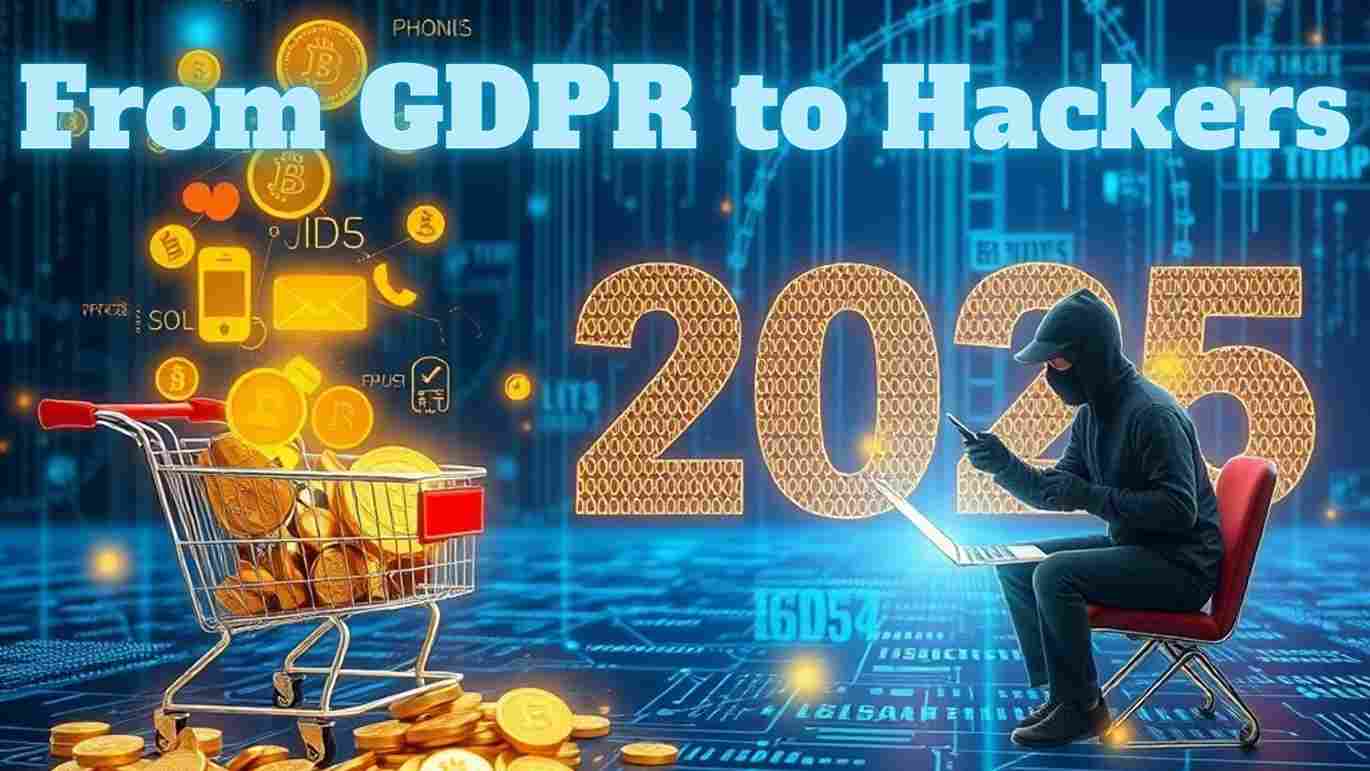In 2025 you need to know 10 Proven Ways to Protect Your Personal Data, one thing is becoming increasingly clear: personal data is the most valuable asset in the digital world. If back in the day it was gold, oil, or land that everyone wanted, now it’s actually phone numbers, email addresses, shopping history, and even our browsing habits that people are fighting over. It’s not surprising that the phrase “data is the new oil” has turned into a reality.
Just think about it for a second: you’re online shopping, entering your credit card number, your home address, and then checking out comfortably. A few seconds later, a weird notification pops up—suspicious transactions on your account. Or worse, your office email gets hacked, and all your important documents get stolen. Scary, right?
On the flip side, regulations like EU 2016 679, more commonly known as the 2016 679 GDPR (General Data Protection Regulation), are here to provide legal protection to people in Europe (and indirectly around the world). But just having rules isn’t enough. Hackers are always looking for new loopholes, and security technology has to keep evolving.
The big question is: how can we protect personal data amidst increasingly sophisticated hacker attacks, especially with the rise of AI being used for cybercrime?
So, in this article, I’m gonna talk about 10 proven and relevant ways in 2025 to protect your personal data— ranging from the basics that often get ignored to advanced solutions includes utilizing tools like FireEye Cyber, Acronis Antivirus, or ESET Cyber Security.
1. Get to Know the Rules of the Game: From GDPR to Global Digital Privacy
Before we dive into the technical stuff, let’s get a grip on the basics of the law. The GDPR (General Data Protection Regulation), which officially kicked in with EU 2016 679, isn’t just some complicated rule from Europe. This regulation is the foundation for how companies need to handle, store, and protect their users’ personal data.

What does it mean to you?
- Every major platform you use (Google, Facebook, Amazon) needs to be transparent about how your data is used.
- If companies break the rules, they could face fines in the billions.
- You are entitled to request the deletion of your data or its transfer to a different service.
However, when it comes down to it, being personally aware is still the top priority. Rules only work if we also know how to protect our personal data on a personal level.
2. Stop Using “123456” as Your Password, Seriously!
I know it sounds cliché, but a lot of people still have passwords like “qwerty” or “password123” for their bank accounts. Meanwhile, brute force attacks are getting smarter.
Quick tips:
- Use a password manager.
- Mix uppercase, lowercase, numbers, and symbols.
- Always update your password at least every six months.
Imagine a password like your house key. If your house key is easily duplicated, don’t be surprised if a burglar strolls in without a care.
3. Two-Factor Authentication (2FA) Is a Must, Not Optional

By 2025, 2FA will not just be an additional feature but a second line of defense. Whether through SMS, an authenticator app, or even biometrics, this extra layer is super helpful.
For example, even if a hacker manages to guess your password, they would still need an additional code that only you can access.
4. Antivirus Isn’t Just a Formality: Use a Serious One
Many people install antivirus just for the sake of it, without knowing its actual function. In reality, modern antivirus programs are way more advanced.
Try this top choices to Protect Your Personal Data in 2025:
- Acronis Antivirus: known for its AI-based protection that can detect the latest ransomware attack patterns.
- ESET Cyber Security (ESET Cyber): lightweight, fast, but tough against malware and phishing. Perfect for those of you working remotely.
Remember, antivirus today isn’t just about “scanning for viruses”. They act like the immune system of a digital body—detecting, quarantining, and eliminating threats before they spread.
5. FireEye Cyber: Enterprise-Class Solution for Serious Threats
When it comes to large companies or organizations, FireEye Cyber remains one of the most trusted solutions. FireEye is well-known for its ability to detect Advanced Persistent Threats (APT) that are usually aimed at governments, banks, or giant corporations.

But the good news is, there’s now a more affordable version of the service for individuals and small businesses. So, it’s not just giant corporations that can use it.
6. Update Your Devices, Don’t Be Lazy to Hit ‘Install Now’
How many times have you ignored update notifications with the excuse of “I’ll do it later, I’m busy right now”? The thing is, every time there’s an update, it usually includes security patches to close gaps that hackers have already found.
Practical advice:
- Turn on auto-update on your smartphone and laptop.
- Don’t use pirated software— the risks are way higher than the money you save.
7. Backup Your Data: Don’t Let It Disappear All at Once
Hackers have countless ways to mess with people’s lives, and one of them is ransomware. Imagine all your photos, work documents, or business data being locked up, and then they ask for a ransom in Bitcoin.
So, what’s the solution? Regular backups.
- Use encrypted cloud storage.
- Keep offline backups on an external hard drive.
- Follow the 3-2-1 rule: 3 copies of your data, 2 different media, and 1 in a different location.
8. Avoid Clicking on Links: Phishing Techniques Are Evolving
Fake “bank” emails, fake shopping promos, or fake meeting invites—they’re all looking more and more legit. By 2025, phishing will often use AI to make emails seem like they’re written directly by your boss.
Tips to handle phishing:
- Check the sender’s email address.
- Don’t click on suspicious links.
- Turn on advanced spam filter.
9. Employ a VPN when using public Wi-Fi.
Coffee shops or airports are hackers’ favorite spots to steal data via public Wi-Fi. The safest solution: use a VPN (Virtual Private Network).
A VPN will encrypt your data traffic, so even if someone is snooping, they can’t read your data.
10. Educate Yourself: Digital Security Is a Process, Not a Product
Lastly, never settle for just one solution. Hackers are always looking for new ways, and digital security is a long journey. Keep up with security news, read updates from antivirus vendors, or even take a short course on cyber hygiene.
Your Data, Your Responsibility
At the end of the day, protecting your personal data isn’t just about following rules like the 2016 679 GDPR or installing ESET Cyber Security. It all comes down to personal awareness.
In 2025, as AI is capable of crafting phishing emails that are more convincing than those written by humans, and hackers are finding ways to breach systems that we haven’t even imagined yet, being aware of how to protect your personal data is the strongest first line of defense.
If you want to live a more peaceful life in the digital world, don’t wait until you become a victim. Start practicing these 10 ways now, and make sure your personal data stays safe.
Want to read more detailed tips about the latest security technology and cyber security software recommendations? Check out other articles on this blog, as I will discuss in more depth about the hot digital security trends of 2025.

